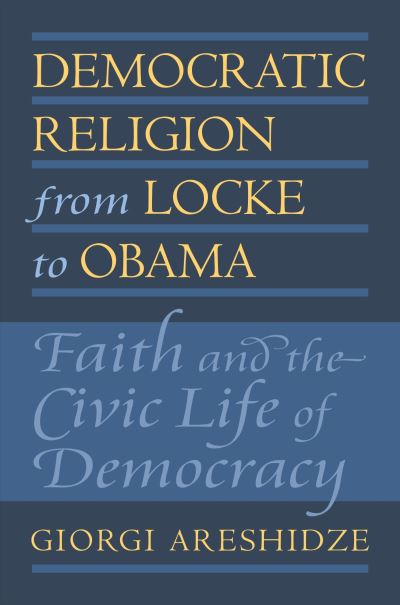
Debating or making speeches, Americanpoliticians invariably cite tenets of Christian faith-even as they unfailingly defend the liberal principles of tolerance and religious neutrality that underpin a pluralistic democracy. How these seemingly contradictory impulses cancoexist-and whether this undermines the religious tradition that makes a liberal democracy possible-are the pressing questions that Giorgi Areshidze grapples with in this exploration of the civic role of religion in American political life.
The early modern Enlightenment political philosophy of John Locke has been deeply influential-if often misunderstood and sometimes contested-in shaping both the theoretical and practical contours of contemporary debates and anxieties about religion in a liberal society. Areshidze demonstrates that Locke anticipated a great theological transformation of Christianity in light of modern rationalism, one that would make Christianity into a tolerant religion compatible with liberal political principles. Locke's experiment, as this book shows, has succeeded in important respects, but at a tremendous cost-by demanding a certain theological skepticism about revealed religion that could ultimately undermine the public concern for religious or theological truth altogether.
Democratic Religion from Locke to Obama evaluates these results in light of the role of religion in American political development, particularly as this role has been further defined in the work of political philosopher John Rawls. In the political theologies of Martin Luther King, Jr., Abraham Lincoln, and Barack Obama, Areshidze shows how, while working under Locke's influence, all of these thinkers draw upon religion, including traditional revealed Christian ideas, in their efforts to reshape America's moral consciousness-especially on the question of racial equality-in ways that might have surprised Locke.
Finally, drawing on Alexis de Tocqueville's encounter with the Lockean experiment in America, this book suggests that the dissonance between how tolerant we want religion to be and what we expect it to accomplish in our civic life is a consequence of the liberal transformation of religion. By reminding us of this religious transformation, Tocqueville's "political science" may explain some of the deepest spiritual and civic anxieties that continue to beset American democracy.
| ISBN: | 9780700622672 |
| Publication date: | 30th June 2016 |
| Author: | Giorgi Areshidze |
| Publisher: | University Press of Kansas |
| Format: | Hardback |
| Pagination: | 224 pages |
| Series: | American Political Thought |
| Genres: |
Politics and government History The environment |